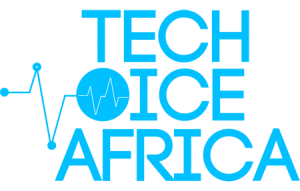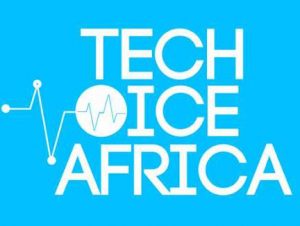The Democratic Republic of Congo (DRC) is poised to empower it’s growing Tech Startup ecosystem with the new “Startup Act”. DRC is one of the most resource-rich countries in the world, with an abundance of gold, tantalum, copper, and tin—minerals used in the production of electronics such as batteries, phones and laptops—yet the country trails behind others in terms of development.
Decades of ethnic conflicts and political crises have made the second-largest country in Africa fall short of its potential. However, the country’s government and members of its tech ecosystem are working to change this, with the recent approval of the country’s startup bill “DRC Start-Up Act” being a major step in the right direction.
“We are putting in place the necessary framework to transform DRC’s advantage into economic dividends,” Félix Mangwangu, CEO of Ishango startup centre, one of the largest incubators in DRC, told TechCabal. “The misconceptions about DRC that we’re a country at war with no opportunities or interesting startups to finance are false.”
The startup bill was signed into law on September 8, 2022 by President Felix Tshisekedi and published in the government’s official journal on November 2. The official launch of the startup act took place at the Hotel Pullman in Kinshasa on November 23. This landmark event took place three years after the idea for this bill was conceived at the pre-hackathon of Lubumbashi Digital Story in November 2019 and the Kinshasa Policy Hackathon in February 2020.
The act was designed through a participatory process involving the collaboration of different stakeholders in the DRC ecosystem. In February 2020, the promoters of the bill collaborated with i4Policy, a pan-African entity specialised in the formulation of startup acts and Patrick Muyaya, then a member of the Congolese parliament and now the minister of communication.
In August 2020, a national workshop was organised to consolidate and validate the working version DRC startup bill. This process which was led by the Ministry of Entrepreneurship and SMEs brought together members of the private and public sector in order to reach a consensus. By June 2021, the bill was sent to parliament and integrated into two draft bills on the promotion of entrepreneurship and startups.
After over a year of the bill being in the parliament, President Tshisekedi passed the bill into law on September 8, 2022.

What’s in the new Congo DR Startup Act?
This new act is expected to provide a legal and regulatory framework that supports and promotes entrepreneurship and innovation among tech startups in DRC.
The bill, which is over 60 pages long, contains many laws with a few key highlights being: a clear definition of startups and incubators; tax benefits for startups, incubators, investors and investment groups; intellectual property protection; funding for research and development; days off work for startups founders who are currently employees in order to work on their startups.
The new act defines a startup as “an innovative venture with a strong potential for exponential economic growth which has been operating for less than seven years, that is in need of substantial capital investment to operate and scale its business model.”
Although the act is law, there’s still one more hurdle left as the law only establishes the general guiding principles and still needs decrees to clarify the specifics of these new laws. For example, it’s not clear how much tax incentive investors would get or how many days off work startup founders can get from their current employers.
Junior Luyindula, a regulatory expert and co-founder of avocats.cd, explained to TechCabal that this is a normal process in francophone countries where laws need accompanying decrees to be signed by the prime minister and minister for entrepreneurship.
Luyindula added that the creation of the decrees and implementation of the startup Act will be done with input from founders, investors, incubators and other relevant ecosystem players.
Putting DRC back on the map
Across Africa, startup acts are emerging, with Kenya, Rwanda, Ghana, Ethiopia and a few other African countries still in the process of drafting their startup bills. DRC joins an elite list of a few African countries such as Senegal, Nigeria and Tunisia which have startup acts.
With this act, it’s expected that DRC will be able to better support tech innovators and entrepreneurs contributing to the country’s digital transformation.
Alongside the act, there are other measures being put in place to improve the business climate in DRC. These include a bill on digital technology and online rights, which is currently in parliament; and the transformation of the National Agency for the Development of Congolese Entrepreneurship ANADEC, which has been endowed with financial resources to implement support measures for Congolese entrepreneurs.
In terms of financial incentives, the World Bank recently launched a $300 million Transform project, which will support the creation of up to 2,500 formal businesses and 28,000 new jobs in Congo. The Congolese government also established the Entrepreneurship Guarantee Fund in Congo (FOGEC) whose mission is to facilitate and guarantee access to Congolese financing.
These efforts combined with a fairly stable political climate are critical elements that the DRC tech ecosystem will be banking on to help restore investor confidence, considering that one of the biggest challenges facing Congolese startups is access to finance.
In 2021 Congolese startups raised less than $1 million from VC firms according to Partech 2021 funding report with the major deal being $350,000 raised by female-founded fintech Maxicash, a paltry sum when compared to $353 million raised by neighbouring francophone counterpart Senegal which had its startup Act in December 2019.
Fortunately, these different efforts appear to be bearing dividends as Congo-based cryptocurrency startup Jambo raised $37.5 million earlier this year and, more recently, B2B food marketplace Wenzemobile raised a $60,000 pre-seed from DRC Impact Angels and Catalytic Africa, a matching fund by the African Business Angels Network (ABAN).
“This act and other steps by the DRC government will help put the country back on the map of credible Africa tech ecosystems with a visible legal framework, making it easier for investors to come in,” Hannah Subayi, co-founder of DRC Impact Angels.
“We are all very excited to show the innovative scalable tech solutions developed in DRC.”















